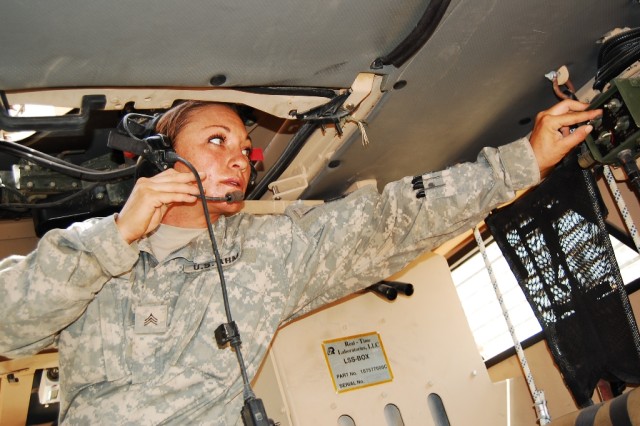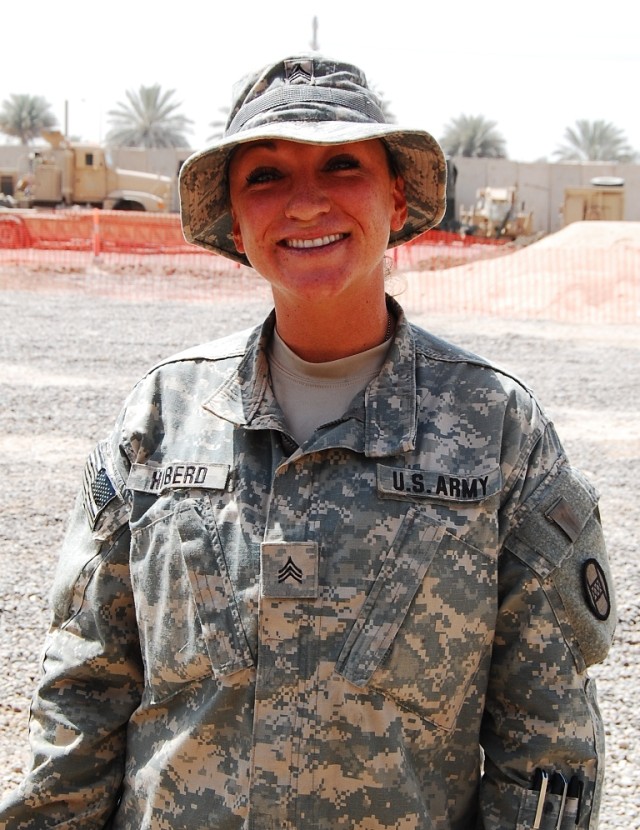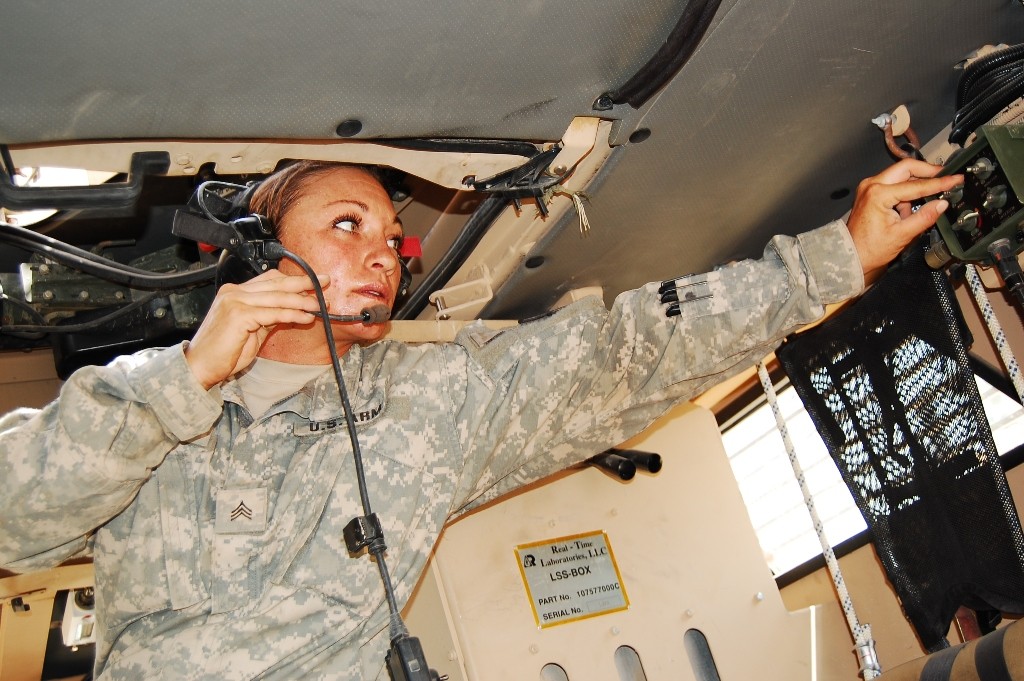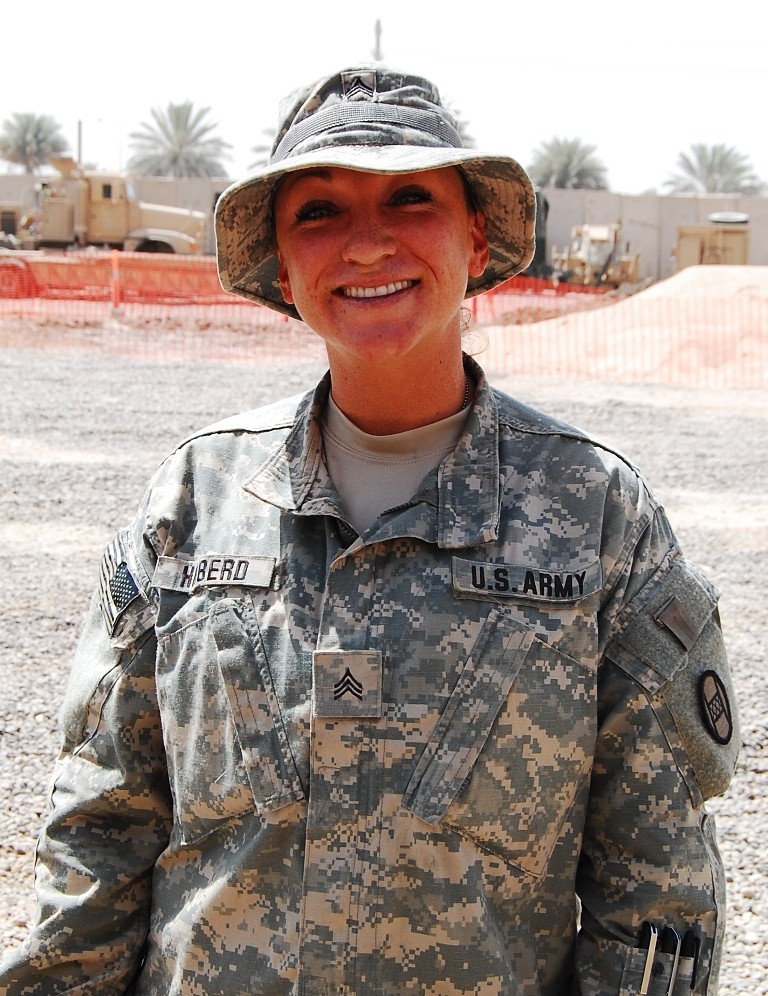BAGHDAD - Sgt. Frankie Hibberd went toe-to-toe with Army doctors, sergeants major and colonels when an unexpected medical diagnosis put her deployment plans in jeopardy.
Medical personnel discovered pre-cancerous cervical cells, when Hibberd, a signals non-commissioned officer with D Company, 230th Brigade Support Battalion, 30th Heavy Brigade Combat Team, went through the medical screening process at Camp Shelby, Miss., last year.
Hundreds of Soldiers are told they cannot deploy during the pre-deployment process. Some challenge the process, some don't. Hibberd, who volunteered to deploy, unwaveringly challenged the system to do whatever it took to go to Iraq.
"I was sending emails and jumping up and down on sergeants major's and colonels' desks saying 'Pick me, pick me,'" said Hibberd.
After training for three months to go to Iraq, Hibberd found out about the abnormal cells. She agreed to a biopsy but would not accept that she could not deploy.
"I said, 'I want to go so bad. Please put in writing that I don't need any follow-up treatments because if I need even as much as a shot within this year, I won't be able to go,'" Hibberd said.
The doctor agreed to write a memorandum to clear Hibberd for deployment if the biopsy was benign. Two days later, the results were in and the second round of the fight began.
The abnormal level of the cells was too high to ignore. Hibbard needed surgery and deployment was out of the question.
"I told them, 'You are telling me the friendships and bonds that I've made, all the things I learned from the training now mean nothing and I'm just going home''" said Hibberd. "'No sir, I can't accept that.'"
Hibberd said she pleaded in tears with doctors and sergeants in her chain of command before speaking with the colonel at Camp Shelby, who adamantly said there was no way she could deploy.
It was a course of action Hibberd just couldn't believe was happening.
"Crying uncontrollably, I completely lost my bearing," she said. "Just take them out and let me go."
As the brigade boarded planes to go west from Mississippi, Hibberd boarded a flight back to West Virginia to have surgery.
Hibberd had the questionable cancerous cells removed, and with good results. The doctor sent Hibberd a letter giving her a clean bill of health, without need for follow-ups for 12 months.
"I called everybody," said Hibberd. "So many people were in my corner from headquarters; they hand delivered my records and the letter to the state surgeon general's office."
Within 48 hours, Hibberd was on her way back to Camp Shelby, clearing the pre-deployment process in about a month. Afterwards, she loaded a bus to ride back to North Carolina at meet up with the rest of the brigade at Fort Bragg.
Hibberd won the fight and is currently serving her country in Iraq. Her presence is greatly appreciated by her co-workers.
"She is very serious about her work and goes above and beyond, motivating me and others to do PT and eat healthier," said Sgt. 1st Class Melissa Strouse, of Glen Daniel, W.Va., Hibberd's roommate. "We call her, 'ray of sunshine.'"
When she returns from this deployment, Hibberd plans to compete in figure competitions, pursue her degree in sports and recreation and earn a commission as an officer.




Social Sharing